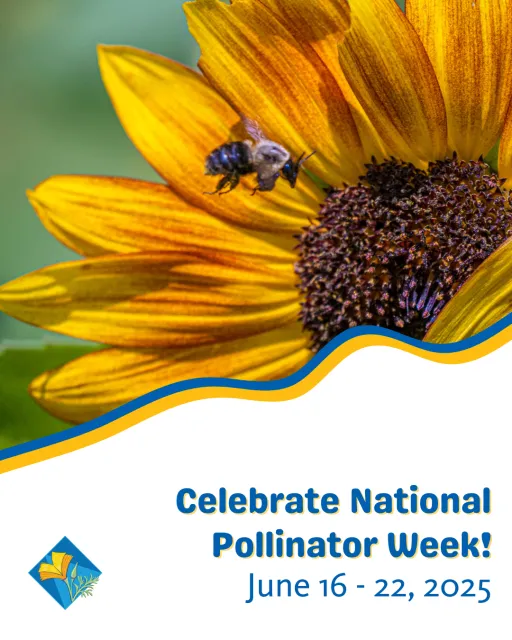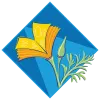
National Pollinator Week, which begins today and runs through June 22, was established in 2007 following a unanimous vote by the U.S. Senate. Why make a federal case over pollinators? Many of the healthiest foods in our diets – almonds, blueberries, squash, strawberries, peaches and much more – are dependent on pollinators. The health of all our natural ecosystems relies on the pollination of flowering plants for their existence and survival.
Birds, bats, butterflies, moths, flies, beetles, wasps and, most importantly, bees are pollinators. They do their critical work while feeding. In the process of collecting nectar, they inadvertently move pollen from the male part of the plant (anther) to the female part (stigma). This transfer enables fertilization, resulting in the production of seeds and fruits.
Pollinators face challenges like habitat loss, pesticide use and climate change. Gardeners can support pollinators in their own yards by providing the right plants at the right times, providing access to fresh water and shelter, and curtailing pesticide use.
Native plants are among the best choices for pollinators because of their abundance of nectar and pollen, in addition to being low maintenance, generally pest free and drought tolerant. Different flower sizes, shapes and colors, as well as varying plant heights and growth habits, support a greater number and diversity of pollinators. Common herbs such as rosemary, oregano, basil, marjoram and borage are excellent pollinator plants. Add them to your yard. Many of the actions that help pollinators also support natural beneficial insects – reducing the need for pest control.
Vegetable gardens can also be a source of food for pollinators. Leave some vegetables – like artichokes and broccoli – on the plant and allow them to bloom. Plants like lettuce and other leafy greens will go to flower (bolt) when the weather gets warm, as do root vegetables like turnips and carrots that haven't been harvested. These flowers will also attract and feed pollinators.
For more ideas for preserving local pollinators throughout National Pollinator Week, follow our Facebook (Fresnomastergardeners) and Instagram (@fresnomastergardeners) feeds. Also see the UC Master Gardeners’ Gardening for Pollinators website.
___________________________
Written by UC Master Gardener Jeannette Warnert.


